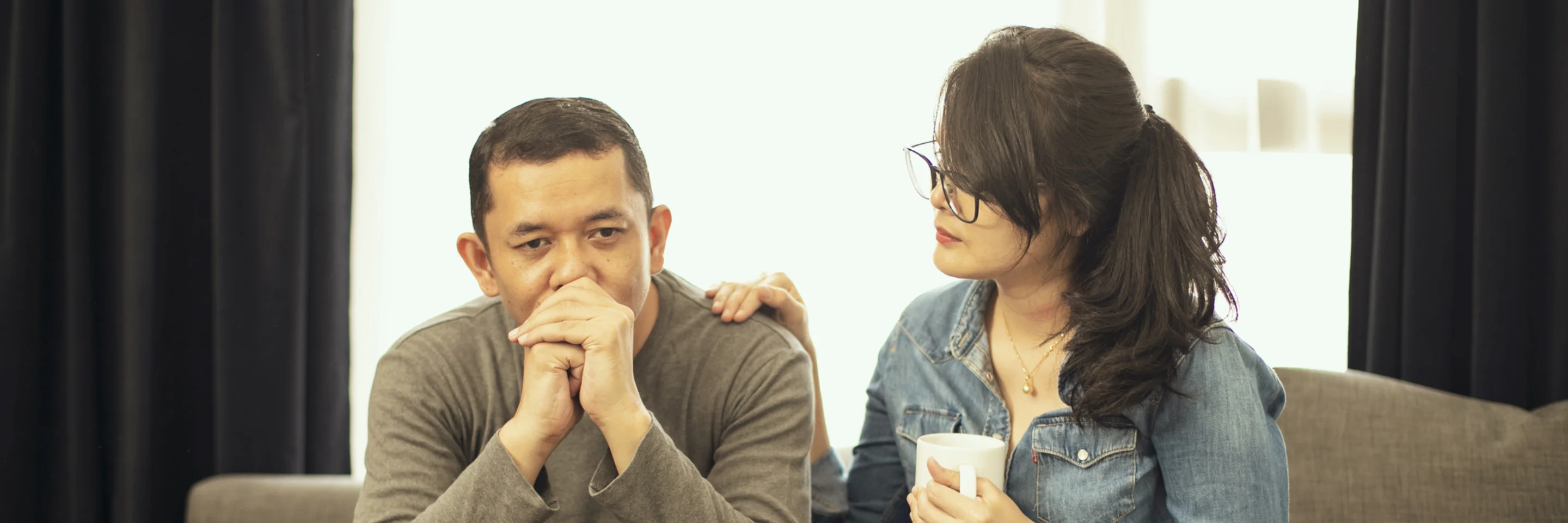
Dealing with grief (without guilt or comparisons)
 | By the team of mental health professionals at Koa Health |
Unfortunately for people everywhere, loss is both universal and limitless.
There are as many kinds of loss as there are individual experiences, and all of them result in a particularly unpleasant sensation: grief.
And while logically, we may be aware that grief serves a purpose—it’s an important part of the healing process—that knowledge doesn’t always make grief easier to get through, especially when we’re worried about whether or not we "should" be sad.
With so many people suffering after losing loved ones, mourning the end of a relationship, or being sad about missing a milestone event can feel uncomfortable or even self-indulgent. We tell ourselves things like "I feel sad, but I shouldn’t because other people have it worse".
But comparing your experiences and feelings to what other people are going through won’t help you heal.
Because death is not the only reason people grieve. Grief is a natural, human reaction to all manner of loss, such as:
- Breaking off a relationship (whether it’s a platonic, romantic or professional partnership).
- Losing a furry (or scaley or feathery) companion that kept you smiling in good times and bad.
- Delaying a major life event such as a graduation or wedding (or missing it altogether.
- Having your assumptions and ideas about health, safety and how the world works upended.
- Dealing with the vague, hard-to-pin-down feelings of sadness that come with getting through a much-altered day in the new normal.
- Anticipating and worrying about what might happen to you and your family if someone catches coronavirus.
The list goes on and on, and it makes sense: Loss is as diverse as the people who go through it.
But there’s no one-step overnight solution that works for everyone. Like with so many challenges in life, adapting after loss takes time and effort.
Adapting to your new normal after loss
After a loss, one of the hardest things to achieve is getting to a place where we accept our feelings and adjust to our new "normal". Here are a few first steps to take.
1. Feel your feelings
Without judgment, without comparison, if feelings of sadness, anger, or fear come up about something that has happened, let them come.
According to David Kessler, author of Finding Meaning: The Sixth Stage of Grief, in his interview with the Harvard Business Review about Covid-19 and grief, it’s important not to try to block these feelings or move on for at least a few minutes.
The idea here is to let your feelings move through you, instead of getting stuck on repeat because you keep stuffing them down. Remember, feelings aren’t good or bad; they just are.
Your feelings don't have to measure up to your (or anyone else's expectations). You're unique, it makes sense that your reaction to loss is too.
2. Name your emotions.
This can be as simple as saying to yourself: I’m sad because I had to cancel my trip to see my parents, or I’m angry because my partner broke up with me and moved out.
Author of Understanding Your Grief, Dr Alan Wolfelt maintains that it’s especially important to acknowledge our thoughts and feelings because when we claim our experiences and our responses to them, it’s easier to avoid feeling like victims.
Your feelings come from your mind and body, and denying their existence will only make things worse.
3. Focus on the present moment.
After you’ve given yourself some time to really sit with your feelings, it may be helpful to move your focus back to the present moment.
You can do this by focusing on your breath with a round of 4-7-8 breathing or you could also do a "taking stock" activity, wherein you list objects in the room with you.
Centering your attention on elements of real life you can perceive, aka, the feel of your wooden desk under your fingers (hard and smooth) or the scent of lemon and tea wafting from the mug you made and forgot about is another option.
Given present circumstances, it’s only reasonable to be feeling loss. And mourning what’s gone is a necessary (if painful) part of the grieving process.
FWD is here to help!
Looking for a professional to support your personal mental wellness journey? Enjoy a 1-month free trial* on ThoughtFullChat (provided by FWD) which includes:
- Online self-serve tools (e.g., mood trackers, journaling, emotional health assessments and more)
- Evidence-based learning packs
- Unlimited text-based coaching with licensed mental health professionals for one month
Get your free 1-month trial* on ThoughtFullChat here.
*First come first serve basis. For more details, please refer to Mind Strength program page.








